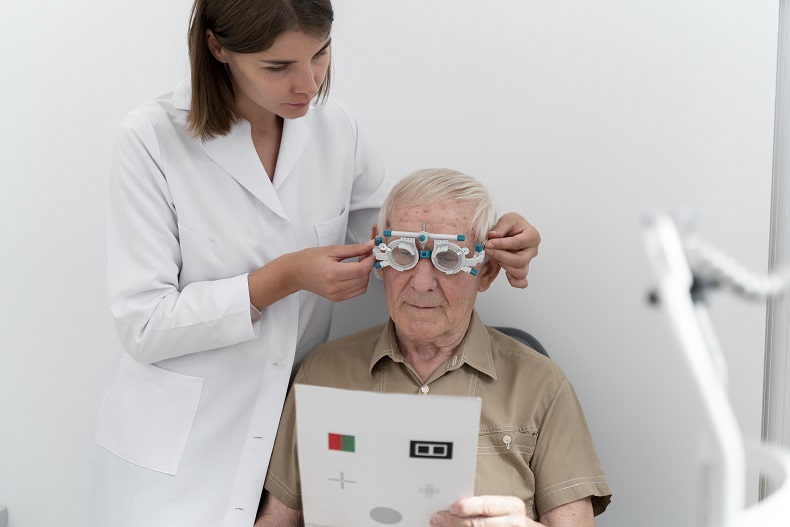Kozhikode, known for its rich educational heritage, is emerging as a significant hub for eye care education, especially in the field of BSc Optometry. This course is not just about learning how to conduct eye examinations; it’s a comprehensive program that combines theoretical knowledge with practical skills, preparing students for a rewarding career in optometry. In this blog, we explore the intricacies of the BSc Optometry curriculum offered in Kozhikode and the career prospects it opens up for graduates.
Understanding the BSc Optometry Curriculum in Kozhikode
The BSc Optometry curriculum in Kozhikode is meticulously designed to provide students with a deep understanding of eye health, vision care, and optical sciences. The program typically spans over three years and includes subjects such as human anatomy, physiology, optics, and visual science, as well as specialized optometry subjects.
One of the unique aspects of the curriculum is the balance between theoretical knowledge and practical application. Students are not only taught the complexities of the human visual system but are also trained in various diagnostic techniques and eye examination procedures. This hands-on approach is crucial in preparing students for real-world challenges they will face as optometrists.
The Practical Side: Hands-On Training and Internships
A significant part of the BSc Optometry course in Kozhikode involves practical training and internships. Institutions offering Optometry Courses in Kozhikode emphasize experiential learning, where students spend considerable time in clinical settings. This exposure is vital as it allows students to apply their classroom knowledge in a practical environment, under the supervision of experienced professionals.
Internships are often conducted in eye hospitals, clinics, or vision care centers, providing students with a comprehensive understanding of patient care, diagnosis, and treatment of various ocular conditions. This real-world experience is invaluable in shaping the skills and confidence of aspiring optometrists.
Career Prospects After BSc Optometry
Upon completing their BSc in Optometry, graduates in Kozhikode have a wide array of career options to choose from. The demand for qualified optometrists is on the rise, driven by increasing awareness about eye health and the need for regular vision care. Graduates can find opportunities in hospitals, eye clinics, optical showrooms, or even venture into research and academics.
Some may choose to pursue higher studies, such as a Master’s in Optometry, which opens doors to specialized fields within optometry or roles in research and teaching. Others might opt for entrepreneurship, starting their own vision care clinics or optical stores.
Navigating the Challenges in Optometry Education
While the prospects are bright, pursuing a BSc in Optometry in Kozhikode comes with its set of challenges. Staying updated with the latest advancements in eye care technology and treatment methodologies is crucial. Institutions need to continually update their curriculum and teaching methods to reflect these changes.
Another challenge is ensuring that students gain sufficient practical exposure. While theoretical knowledge is important, the essence of optometry lies in its practice. Balancing classroom learning with hands-on training is essential for producing competent and confident optometry professionals.
Emerging Trends in Optometry and Their Integration in Kozhikode’s Curriculum
The field of optometry is rapidly evolving, with new technologies and techniques constantly emerging. Kozhikode’s BSc Optometry curriculum is adapting to these changes by integrating modern advancements in vision care. This includes the incorporation of digital eye examinations, the latest in contact lens technology, and advancements in ocular health management. Such additions ensure that students are not just learning traditional methods, but are also equipped with knowledge of cutting-edge practices in eye care.
Moreover, the curriculum now increasingly emphasizes the importance of holistic vision care, which includes understanding the impacts of systemic health issues on ocular health. This comprehensive approach prepares students to provide more than just basic vision correction; they are trained to be primary health care providers who can diagnose and manage a range of eye-related health issues.
The Role of Technology in Optometry Education
In Kozhikode, BSc Optometry colleges are embracing technology not just in their curriculum but also in their teaching methodologies. Interactive learning methods, such as virtual reality simulations and online learning platforms, are being adopted. These technological tools offer students immersive and engaging learning experiences, simulating real-life scenarios and enhancing their diagnostic and clinical skills.
Furthermore, the use of advanced diagnostic equipment in training ensures that students are familiar with the latest technological tools used in eye care, making them industry-ready upon graduation. This hands-on experience with state-of-the-art technology is invaluable in preparing students for the rapidly advancing field of optometry.
Challenges and Opportunities in Optometry Education
While the future of optometry in Kozhikode is promising, it is not without its challenges. One of the primary challenges is ensuring that the quality of education and training keeps pace with global standards. This requires continuous investment in updating the curriculum, faculty development, and infrastructural upgrades.
However, these challenges also present opportunities. There is a growing need for research in optometry, and Kozhikode could become a hub for such research, contributing to the global body of knowledge in eye care. Additionally, the increasing demand for qualified optometrists in India and abroad opens up numerous career opportunities for graduates.
The Importance of Practical Experience and Lifelong Learning
Practical experience is a cornerstone of optometry education. Clinical rotations and internships are integral parts of the BSc Optometry program in Kozhikode, providing students with real-world experience in diagnosing and managing eye conditions. Such hands-on experience is crucial in developing the skills and confidence required for successful professional practice.
Moreover, the field of optometry requires a commitment to lifelong learning. Graduates must stay abreast of the latest developments in eye care to provide the best possible services to their patients. Continuing education and professional development opportunities are, therefore, essential components of a career in optometry.
Conclusion: Shaping the Future of Eye Care with BSc Optometry in Kozhikode
In conclusion, the BSc Optometry program in Kozhikode is more than just a degree; it is a gateway to a dynamic and rewarding profession. The program not only imparts essential knowledge and skills but also instills a commitment to lifelong learning and professional excellence. As the field of optometry continues to grow and evolve, graduates from Kozhikode are well-equipped to play a significant role in shaping the future of eye care, both in India and internationally.









